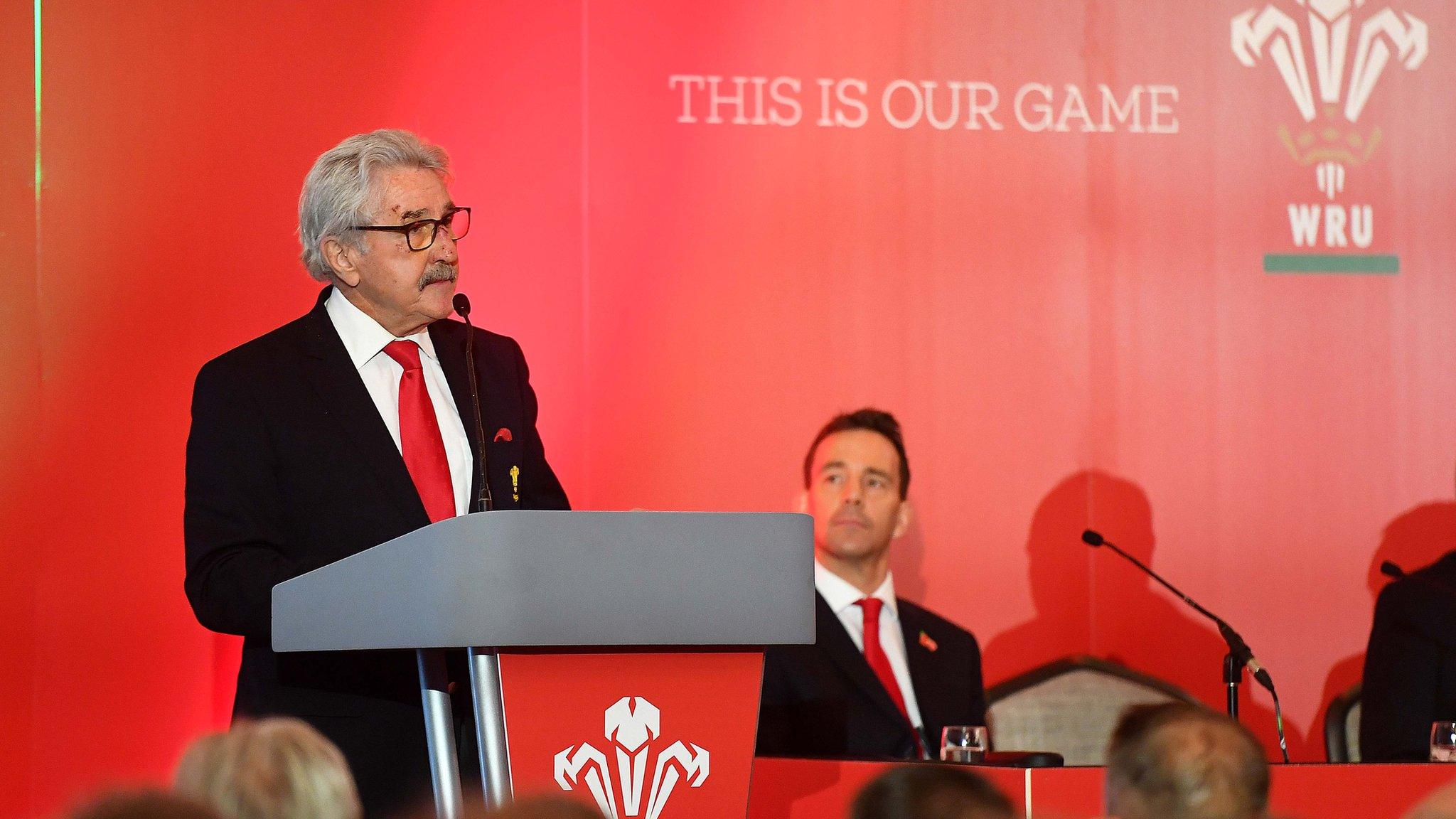Gender violence: Wales Sound campaign tackles men's behaviour
- Published
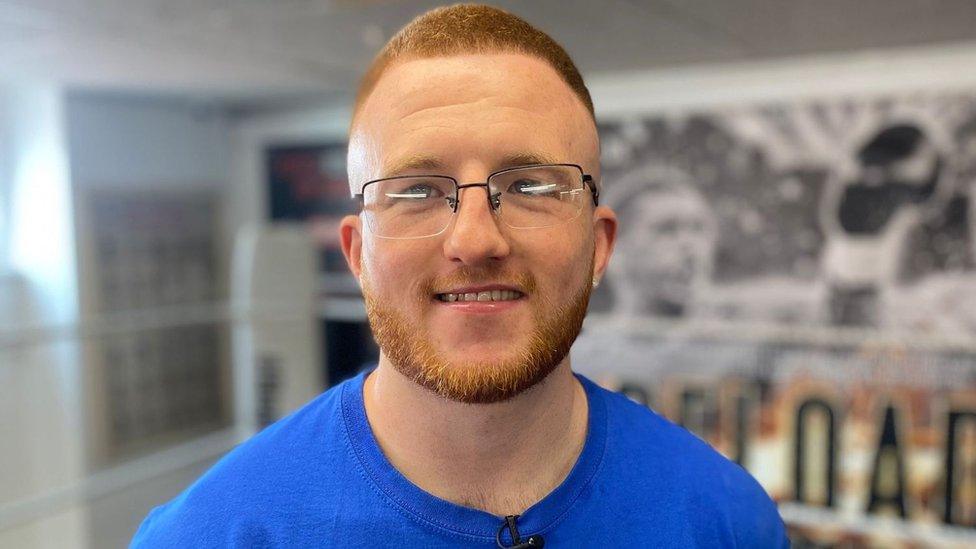
"A lot of men, I think they're scared of pulling their friends up on things," says Farrell Rafferty
"I always viewed men as the alphas in relationships, it was more, 'I'll take care of everything, you guys just look pretty… not in a disrespectful way'."
Farrell Rafferty's views on how a man is supposed to act and his attitude towards women have evolved a lot.
He has taken part in helping shape a campaign that encourages young men to learn about gender-based violence.
The Welsh government said it hopes its "Sound" campaign can make Wales the "safest place in Europe for women".
Farrell is part of St Joseph's Boxing Gym, and was one of a group of young men who discussed topics like toxic masculinity, coercive control and behaviours that can lead to violence against women to help shape the campaign.
The 25-year-old amateur boxer said he "definitely viewed women in a different way" until growing up and then he "realised that was wrong". He believes calling friends out on problematic behaviour is vital.
"I have a pretty influential friendship group, where if one of us are doing something wrong, we will get pulled up on it," he said.
"A lot of men, I think they're scared of pulling their friends up on things, 'cos they think they're going to lose that friendship. But if you are a true friend, a real friend, you'd know when you're doing wrong."
Mr Rafferty said going to St Joseph's boxing gym and speaking with other men is so important.
"It's not just about punching people in the face," he said. "We are going through difficulties in our life and we know we can always talk to each other. It encourages men to talk more."
Patrick Bilongo believes the media, musicians and rappers have a lot to answer for when it comes to influencing men's behaviour.
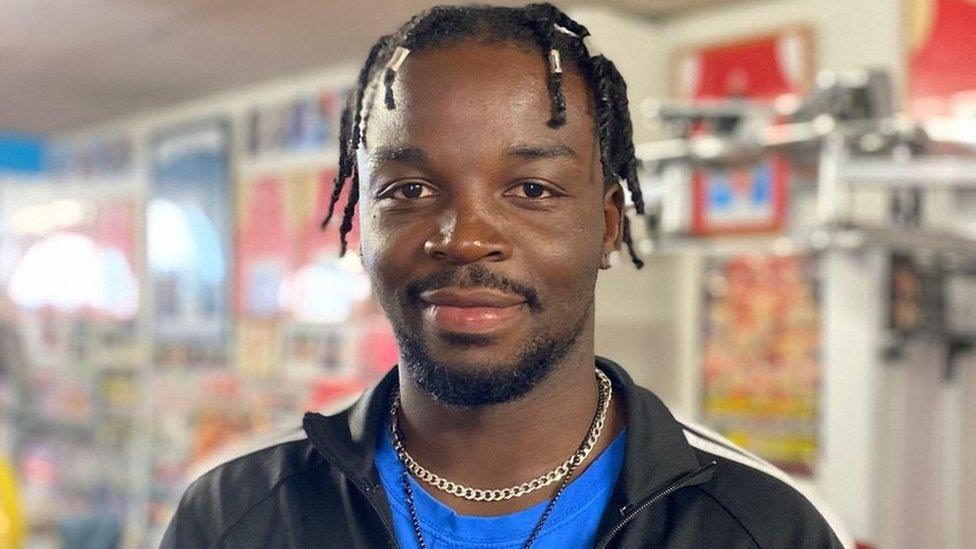
Patrick Bilongo wants more men to show their emotional side
The 20-year-old said TV taught him "you're not supposed to cry, you're not supposed to show emotions".
He said now he had learned it was actually "completely the opposite, and all right to do so".
The amateur boxer said some rappers' behaviour was not a realistic representation of "what real life is like."
There was an incident a few weeks ago when he was with someone who wolf-whistled a woman.
'Show more respect'
"I let my friend know, that's a human being, that's not a dog or a cat that you can just whistle at. Show more respect," he said.
He wants to encourage other men to "be more human", and to remind their friends to treat people with respect.
"It's something you need to repeat all the time so their mentality will change," he said.
Mr Bilongo said before the campaign, he did not know about behaviours like lovebombing (showering someone with intense displays of affection to lure them into or keep them in a relationship) or coercive control.
The campaign will target young men with informative content on social media, podcasts, TV and streaming channels.
Rhian Bowen-Davies, an independent consultant in the field of violence against women, said: "It's a really good first step in terms of the prevention, early intervention and that societal wide condemnation of violence against women".
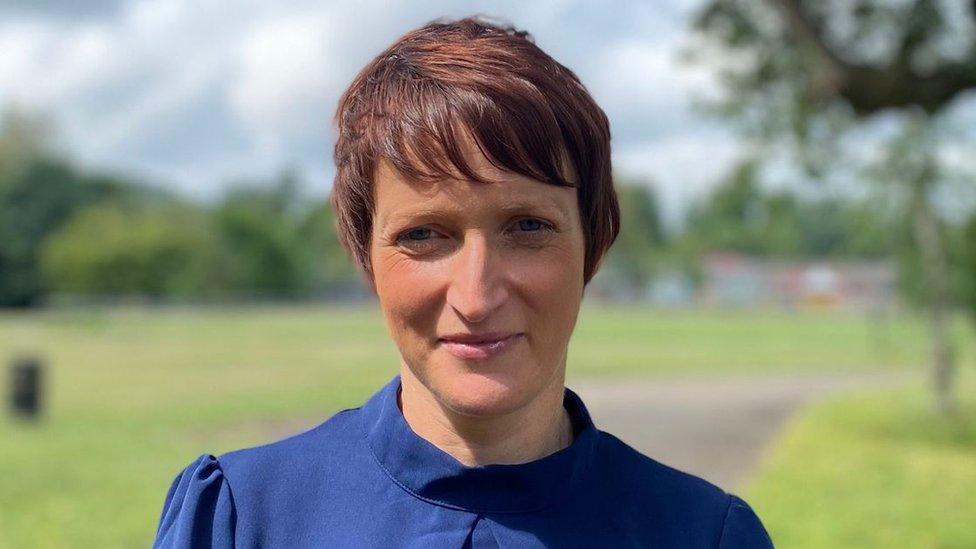
"It's got the potential to reach audiences that other campaigns haven't done," says Rhian Bowen-Davies
She said "men need to understand the role that they play" in stopping and calling out problematic behaviours which can "end up in the situation where violence against women is prevalent".
She called the campaign being "co-produced with young men" exciting.
"It's got the potential to reach audiences that other campaigns haven't done because of the platforms it's going to use and the messages it's sending," she said.
"It makes me feel that we have an opportunity that we can feel safer. If I was to go through life and learned what I've learned and experience what I've experienced, and I don't pass that on, what was I here for?"
Zhivago Greaux has been a boxing coach for about eight years, and is proactive in his approach toward shaping young men in the gym.
"People look at it and think I'm a boxing coach but you're really trying to shape them into good people," he said.
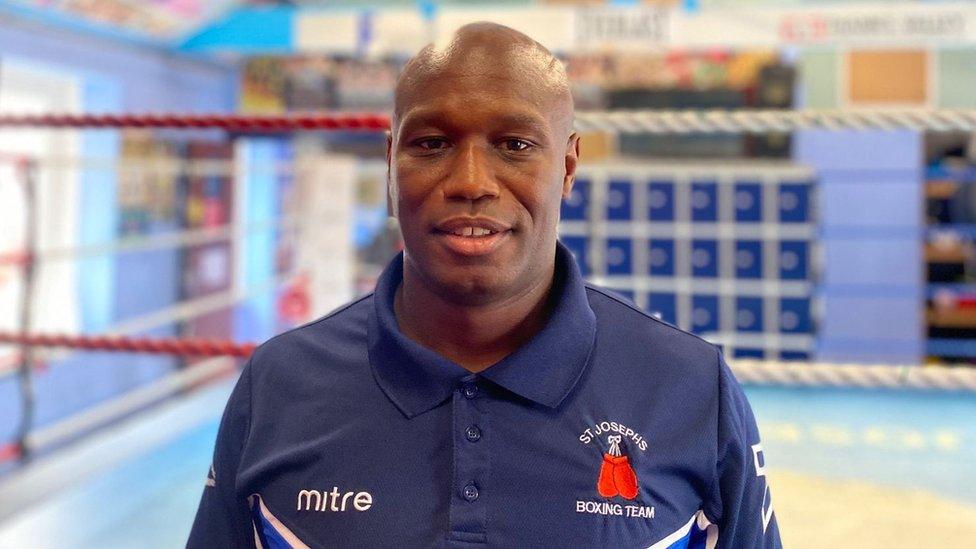
Zhivago Greaux says he wants to open the minds of the young men he coaches
"You pass on your life experiences. Even though you're doing it through a boxing coach lens... you still instil different disciplines into these young kids.
He said even before the campaign, he talked "a lot about toxic masculinity."
"I like to have an open gym and conversation, I want to open their minds," said the Newport coach.
He said sharing his own insecurities and feelings encouraged young men to open up too.
"Currently, I feel we don't have safe spaces for men to talk. I think what we need to do, and what I've tried to do here myself is create an environment that allows men to talk. I encourage it," the 38-year-old said.
He believes with the rise of misogyny, and figures like the social media influencer Andrew Tate on social media, it is a very "scary space we're in at the moment".
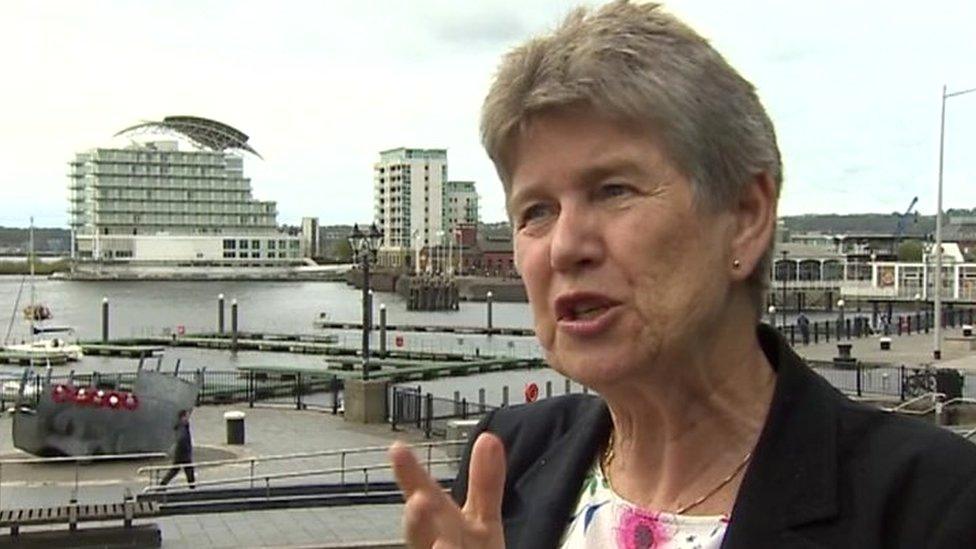
"Younger men still don't recognise that... women are still subject to unacceptable levels of violence and sexual harassment," says Welsh government minister Jane Hutt
"The influence I see he's had on some of the younger kids… that's scary. Scary for me as a man, as a person, as a human - let alone the further impact that could have on women," he said.
Mr Zhivago believes he is now "trying to fight that battle to say 'let's actually be open, let's talk about our feelings, emotions etc, and understand what a male role model really is.'"
Social Justice Minister Jane Hutt said the campaign was "really important as misogyny, sexism, violence against women - and domestic abuse, it's in the news every day and people talk about it as an epidemic."
"It is sad to say in this day and age that younger men still don't recognise that actually women, young women and women of all age groups are still subject to unacceptable levels of violence and sexual harassment," Ms Hutt said.
Related topics
- Published10 December 2022
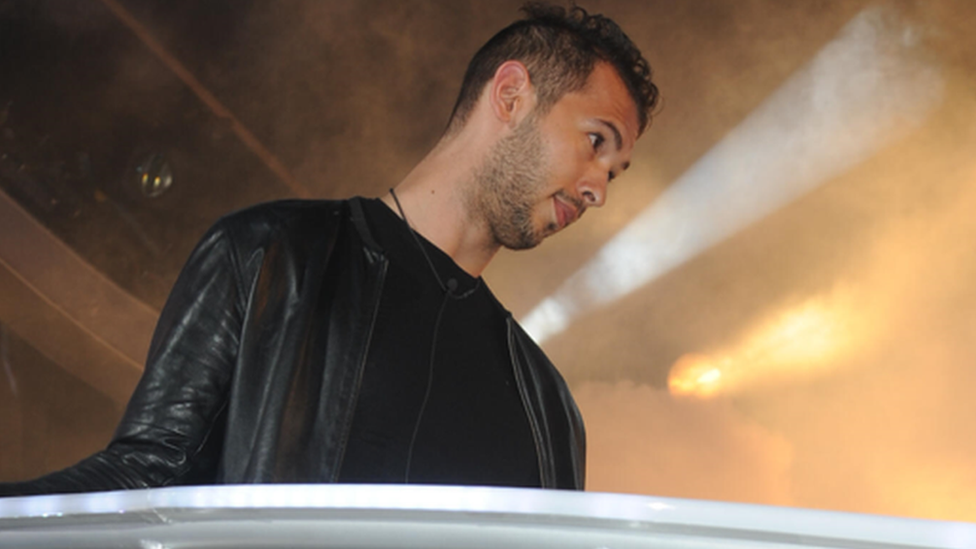
- Published3 May 2023
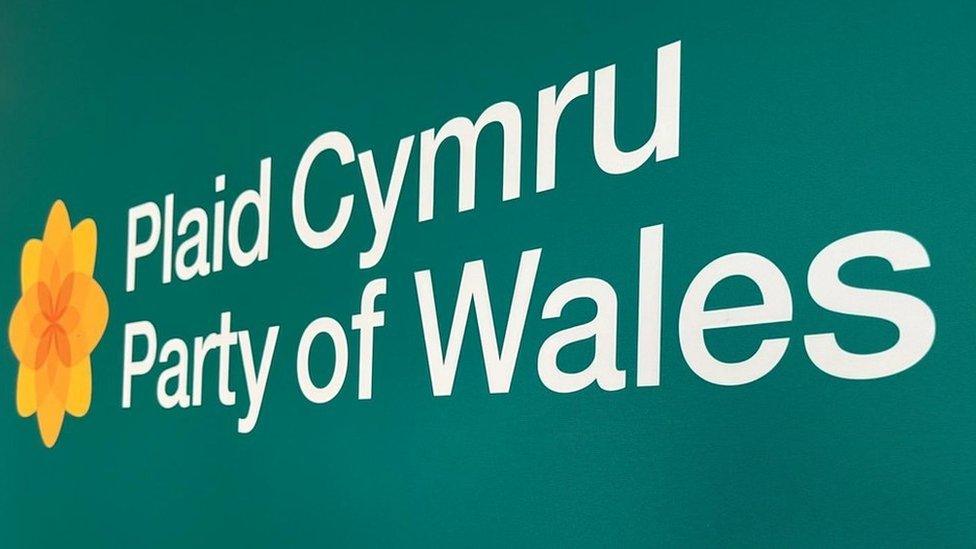
- Attribution
- Published25 March 2023
